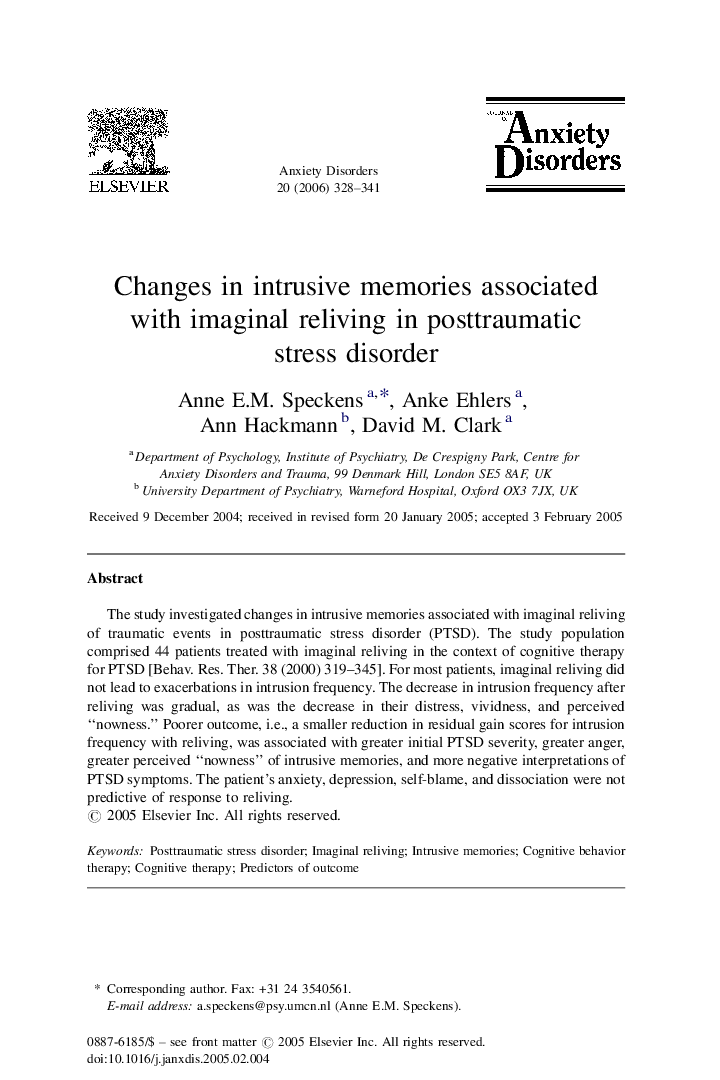| Article ID | Journal | Published Year | Pages | File Type |
|---|---|---|---|---|
| 910234 | Journal of Anxiety Disorders | 2006 | 14 Pages |
The study investigated changes in intrusive memories associated with imaginal reliving of traumatic events in posttraumatic stress disorder (PTSD). The study population comprised 44 patients treated with imaginal reliving in the context of cognitive therapy for PTSD [Behav. Res. Ther. 38 (2000) 319–345]. For most patients, imaginal reliving did not lead to exacerbations in intrusion frequency. The decrease in intrusion frequency after reliving was gradual, as was the decrease in their distress, vividness, and perceived “nowness.” Poorer outcome, i.e., a smaller reduction in residual gain scores for intrusion frequency with reliving, was associated with greater initial PTSD severity, greater anger, greater perceived “nowness” of intrusive memories, and more negative interpretations of PTSD symptoms. The patient's anxiety, depression, self-blame, and dissociation were not predictive of response to reliving.
